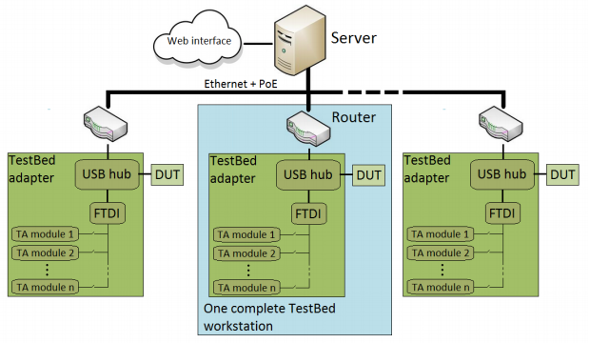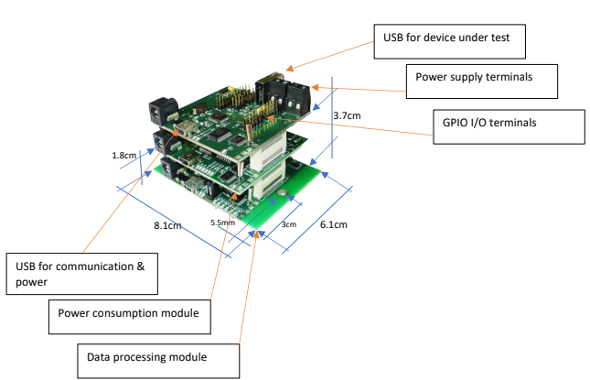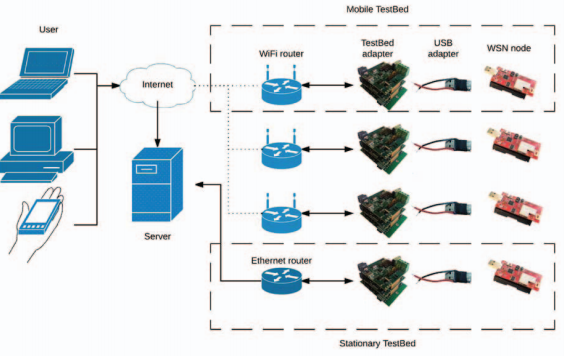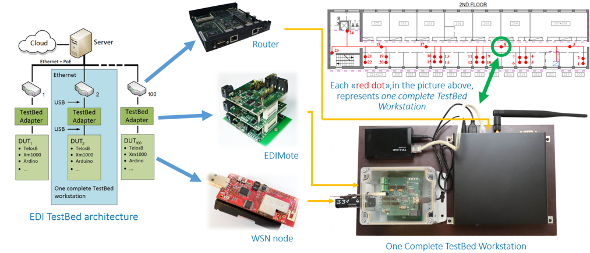Internationale Partnersuche
Innovation & Technologie Angebot
Latvian research institute offers wireless sensor network and internet of things testbed for research and commercial use
Country of Origin: Latvia
Reference Number: TOLV20191031002
Publication Date: 12 November 2019
Summary
A Latvian research institute offers ready to use 100+ node heterogeneous Wireless Sensor Network (WSN) and Internet of Things (IoT) bestbed technology with additional mobile workstation with 50 mobile nodes. The WSN/IoT testbed is designed for development and validation of internet of things and wireless sensor network protocols in factories, intelligent transport systems, etc. The research institute is targeting commercial agreements with technical assistance and research co-operation.
Description
Internet of Things (IoT) and wireless sensor technologies are developing rapidly and are being used in industry 4.0, mobility, aeronautics and other industries. Therefore, a suitable IoT and wireless sensor network (WSN) infrastructure facility (TestBed) is required for testing and validation of wireless sensor devices and heterogeneous communicating objects.
The research institution from Latvia, specialized in electronics and ICT, has developed a 100+ node heterogeneous WSN and IoT TestBed. It is distributed around the 7th floor building. The sensor nodes are located both indoors and outdoors. They can be accessed from anywhere of the world. In addition, it also includes 50 mobile nodes for on-site placement, for example in factory environment or in vehicle. The WSN/IoT TestBed is designed for validation and research of IoT and WSN protocols, sensor devices, heterogeneous communicating objects. Most of these technologies can speed up development process. Large WSN (for example more than 20 nodes) can be tested on testbeds to factors such as battery lifetime, environmental factors, radio coverage accompanied with manual reprogramming, configuring etc. Alternative testing in real environment is a task with daunting manual labour.
The TestBed capabilities:
• IEEE 802.11a/b/g/n/p protocol testing;
• IEEE 802.15.4 protocol testing;
• TestBed workstations with attached XM1000 (TelosB-compatible) sensor nodes;
• Energy consumption measurements and battery discharge simulation;
• Remote simultaneous reprogramming and debugging;
• Eight analog to digital/digital to analog ADC/DAC channels for user needs;
• Command line interface for easy integration into existing workflows.
Currently the research institute is using the TestBed in several international research projects for various purposes: for rapid development and testing of WSN/IoT systems, for development of intelligent transport system’s use case prototype, for testing power units and debugging in a use-case demonstrator, for monitoring and reconfiguring of ten Bluetooth devices simultaneously.
In order to expand international activities, the research institution is targeting the commercial agreement with technical assistance or research co-operation.




Advantages and Innovations
The TestBed is made up of central server and TestBed workstations. Server stores all data, hosts web server with control panel in the form of web page so it is accessible from any device with a browser capable of processing JavaScript.
All data are generated or acquired at device under test (DUT) or TestBed adapter, both of them are connected to the router via USB cable. Technically DUT is connected to the TestBed adapter, but it’s possible gather data from DUT and TestBed adapter simultaneously, because TestBed adapter has a USB hub and access to the DUT is possible through USB port from the router. The TestBed adapter consists of three modules: Main control module, Power consumption module and Data processing module.
The Mobile TestBed provides capability to connect external nodes, which are not connected to local TestBed network, but are connected to TestBed internal network via Virtual private network (VPN). Every workstation has their own certificate for identification and legitimacy. Using this feature multiple TestBeds in different locations can be controlled simultaneously from one workstation allowing evaluation and debugging on stationary and mobile nodes at the same time.
In compassion to other solutions available on the market, the TestBed developed by Latvian research institution has the 50 mobile nods / stations, what allow to conduct research and testing at the client’s facilities (e.g. plant), and each test unit provides an opportunity to simulate the battery discharge test and measure the power consumption of the device.
Stage Of Development
Already on the market
Requested partner
The Latvian research institution is looking to establish the following types of partnerships with industry, SMEs and research institutions:
(1) Commercial agreement with technical assistance where Latvian research institution can provide access to use the TestBed infrastructure (100+ node heterogeneous WSN and IoT platform and 50 mobile nodes) as the service for interested parties. Tasks to be performed by the partner: obtain access credentials and software; connect to the Testbed backend; schedule an experiment time and date; if necessary, ship custom hardware to set up in the TestBed; upload compiled binary; implement of the experiment.
(2) Collaboration within international research projects (incl. H2020 projects), where other academic and industry partners would be required to conduct research and experiments on advanced IoT and wireless sensor network technologies within the project activities: e.g. testing new WSN/IoT systems, protocols, development of intelligent transport system’s prototype, testing power units and debugging in a use-case demonstrator, etc. The partner will be asked to create a specific description of the desired experiments and retrievable data.
Cooperation offer ist closed for requests

